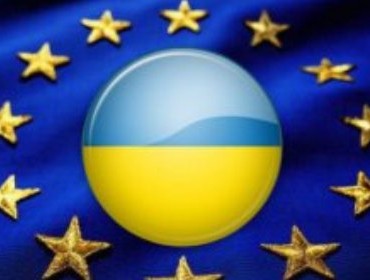By Viktor Shlinchak, Chair of the Supervisory Board of the Institute of World Policy for EurActivBrussels will have a great opportunity this week to show how important Ukraine is to the European Union. Such an opportunity will come to hand as the Ukrainian governmental delegation headed by First Vice-Prime Minister Andriy Kliuev visits the capital of Belgium to clarify the most burning issues which preclude parties from signing the EU-Ukraine Free Trade Agreement.
The European Union should demonstrate the utmost flexibility in negotiations with Ukraine in order to prevent its economic integration with CIS countries. It’s worth reminding that Russia is going to get the Free Trade Agreement within CIS signed as early as mid-May.
A Free Trade Area with the EU is more of an economic than a political challenge for both parties. A ‘breakthrough in the Western direction’ is caused by the cooling atmosphere of official Kyiv-Moscow relations. This, however, is not surprising, and can be considered as a logical process. After the first year of Viktor Yanukovych’s presidency, his team seems to be becoming even more variegated than it was during the election campaign.
Nevertheless, the majority of Ukrainian tycoons want to be accepted as nice guys by the West, instead of bending over backwards at Russia’s whim. This gives Ukraine a chance not to be de facto swallowed by Russia, what had been largely predicted when Yanukovych won presidential elections at the end of February 2010.
Though still having many Moscow-oriented officials in his inner circle (among them primarily Serhiy Lyovochkin, the head of the Presidential Administration), Yanukovych himself prefers to maintain balance in relations with the Russian Federation and Europe.
Such a situation resembles the one which occurred ten years ago in Ukrainian history, when President Kuchma declared Ukraine’s “multi-vector” foreign policy, trying to keep up its reputation in Brussels, Moscow and Washington. It went pretty well until President Kuchma found himself internationally isolated after journalist Gonghadze’s assassination. Viktor Yanukovych has made up his own definition for this, calling it the “strategic balance” of Ukraine and determining to make it a main principle of current Ukrainian foreign policy.
Yanukovych naively thought that he would be able to establish equally good relations with both the Russian Federation and the West. He has not taken into account that Western capitals would not accept political stability at a price of democratic principles. Selective justice and pressure on civil society and media from the Security Services have caused severe criticism among Western countries, while procrastination with reforms, promised by Yanukovych during the election campaign, has cast doubt over their realisation.
Why should the president be the only one responsible for the current failure of the reforms? The answer is rather simple. After the last amendments of the Constitution of Ukraine President Yanukovych has de facto become the chief executive of the state, so he is in charge of what is going on in the country. What is going on, however, can hardly be considered optimistic: an escalation of the inflation rate, an increase in prices and housing costs piling up to form a considerable cloud on the president’s reputation and rating.
Yanukovych must be planning a new breakthrough. Apparently, a soon-awaited management reshuffle is mainly related to this intention. The upgrade of the Government and Presidential Administration’s staff is aimed at providing the economic, judicial and pension reforms about which Viktor Yanukovych used to talk a lot last year, with practical sense. Rumour has it that he is carrying out this staff shake-up so that the most notorious officials in the Administration and the Government can be replaced with people largely known as efficient managers.
The issue is that there are only a few such people in the president’s team. It is assumed that such tactics will not only help to boost the president’s ratings but will also prove that the political will of the current authorities to conduct reforms is firm and sincere.
What is meant is really simple and observable things, from the creation of an attractive investment environment to the implementation of the plan on signing the Free Trade Agreement with the EU. That could be Yanukovych’s first successfully realised project. Perhaps that is why he insisted on strengthening the delegation that was going to leave for Brussels to take part in the next scheduled round of talks.
Andriy Klyuev has a reputation of a good negotiator within his country. However, the Ukrainian side fully realises that the main goal set by the Government, i.e. protecting the interests of Ukrainian manufacturing, is hard. Apart from the increased pressure coming from Russia, our delegation is also under pressure from the Ukrainian agricultural lobby.
Ukraine is concerned about the EU’s position on the quota approach to agricultural supplies to the EU market. As the representatives of the European Union are going to introduce really strict quotas, the Ukrainian delegation will have to put up with much pressure. Especially considering that the deadline of by the end of the year for the signing of the Association Agreement with the EU, set by President Yanukovych, is getting closer.
On the other hand, the signed Association Agreement may be the only achievement of President Yanukovych before the parliamentary elections in 2012, as getting the visa-free regime just before the Euro 2012 Football Championships, as was promised, seems now to be an absolutely unreal thing to do.
Source: EurActiv




Comments theme
Comments themeComments themeComments themeComments themeComments themeComments themeComments themeComments themeComments themeComments themeComments themeComments themeComments themeComments themeComments themeComments themeComments themeComments themeComments themeComments.